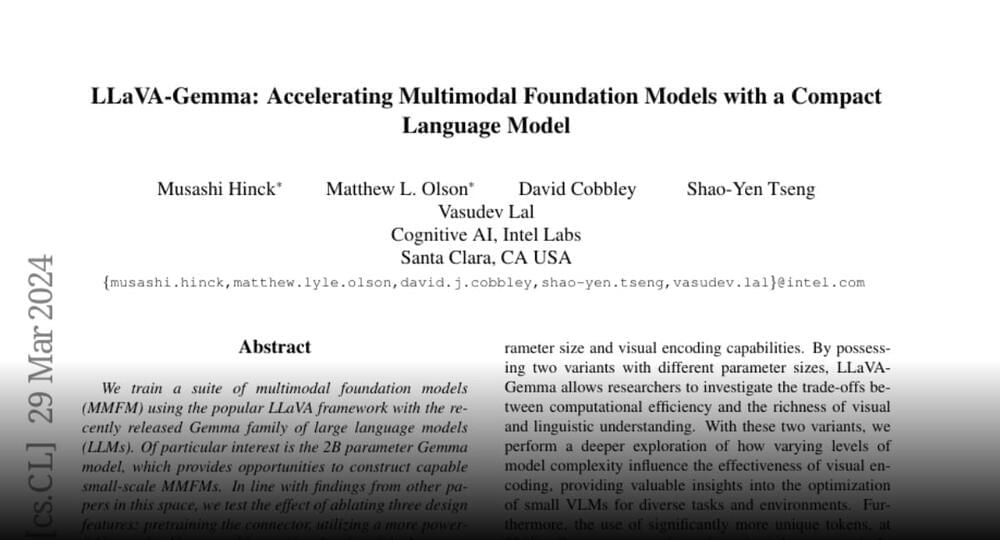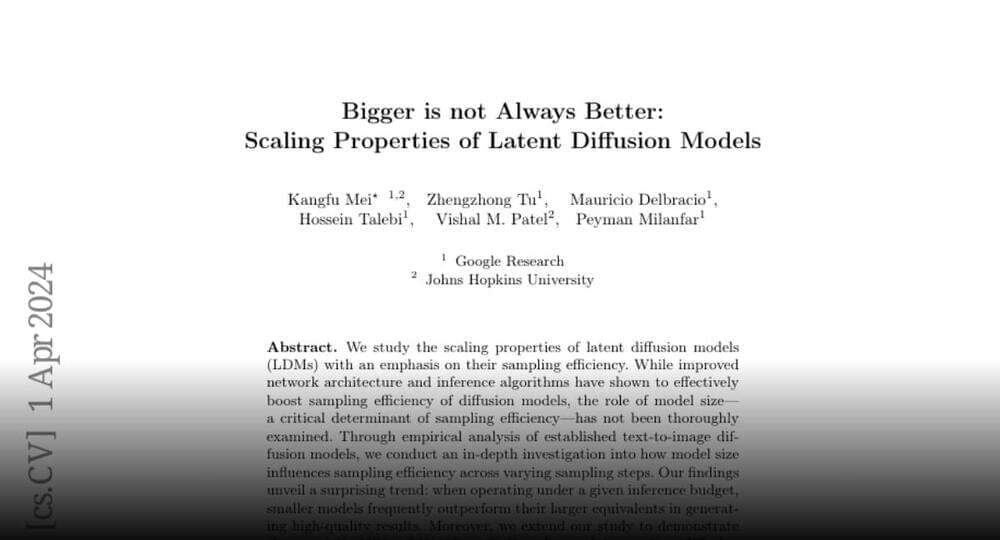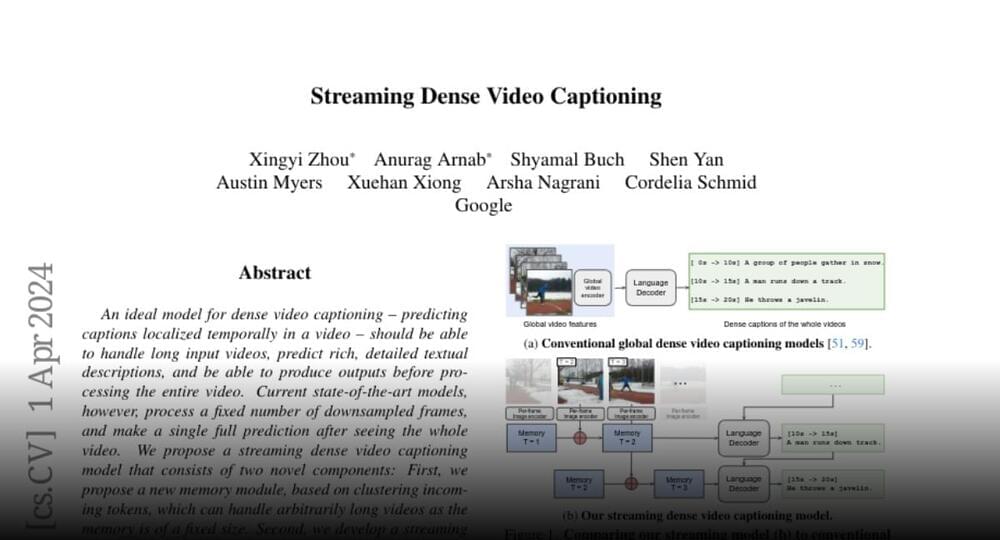People who want to see the total solar eclipse on April 8 may be blocked by cloudy skies if weather forecasts for America are accurate.


Learn about Corning Willow Glass, an ultra-thin, conformable, flexible glass fusion-formed for an incredibly smooth, flat surface, virtually free of defects.
An exploration of the zero energy universe concept and its implications. My Patreon Page: https://www.patreon.com/johnmichaelgodierMy Event Horizon Channel: htt…



Intel presents LLaVA-Gemma.
Accelerating Multimodal Foundation Models with a Compact Language Model https://huggingface.co/papers/2404.
We train a suite of multimodal foundation models (MMFM) using the popular LLaVA framework with the recently released Gemma family of large language models…
Join the discussion on this paper page.



